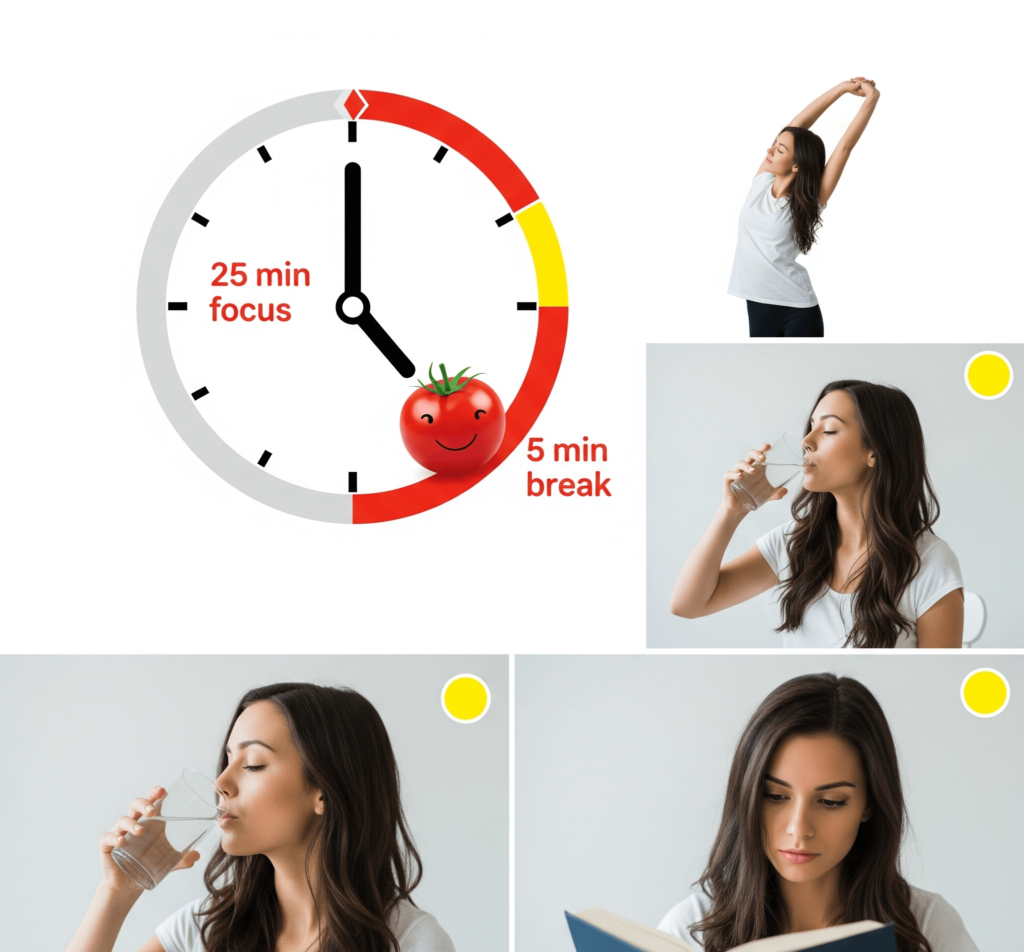So, 7 proven ways to improve study habits instantly are basically keeping me alive right now, no lie. I’m camped out in my tiny Philly apartment, surrounded by empty coffee cups and a desk that looks like a tornado hit it. It’s August 2025, and I’m tryna get better study habits while my cat, Muffin, stares at me like I’m a failure. I’ve screwed up big time—think missing deadlines ‘cause I was binging X threads about Bigfoot—but I’ve tripped into some study hacks that actually work. Here’s my raw, messy, totally human take on improving study habits instantly, typos and brain farts included. Hope this helps, ‘cause I’m barely keeping it together.
Why My Study Habits Were a Hot Mess
Real talk: my study habits were absolute trash. I’d “study” by flipping through a book while watching TikTok cooking fails on my phone. Then I signed up for an online course on Coursera, and yikes, I had to get serious. Studying from home is awesome ‘cause you can wear sweatpants, but it’s also a trap—your fridge’s calling, your bed’s begging for a nap. These 7 proven ways to improve study habits instantly dragged me out of the chaos, even if I’m still a disaster half the time.
- Pro tip #1: Check out Lifehacker’s study tips for extra ideas. Found some gems there, like that Pomodoro thing.
- Pro tip #2: Don’t study where you Netflix. I tried studying on my couch and just fell asleep. Big L.
My Cringiest Study Fail Ever
So, get this: I’m in a Khan Academy math course, thinking I’m basically a genius. I join a Zoom study group, all hyped, and—yep—forget to mute my mic. I’m yelling, “MUFFIN, STOP EATING MY NOTES!” ‘cause my cat’s chewing my notebook. The whole group hears it, and someone goes, “Relatable.” I wanted to melt into the floor. That’s me, improving study habits one embarrassing moment at a time.

My 7 Proven Ways to Improve Study Habits Instantly (That I Didn’t Totally Screw Up)
Alright, here’s the juice—my 7 proven ways to improve study habits instantly, learned through epic fails and way too much coffee. I’m no brainiac, but these worked for me, sorta.
1. Pomodoro Technique: My Brain’s Kinda Okay With It
I found the Pomodoro Technique while procrastinating on X, and it’s legit. Study for 25 minutes, chill for 5, repeat. I use a timer app on my phone, and it’s like a game to trick my brain into focusing. Muffin still knocks stuff off my desk, but I’m way less distracted. Usually.
- Why it’s dope: Keeps me from losing it. I get to check X during breaks, no guilt.
- My screw-up: Set the timer for 25 minutes but forgot to start it once. Classic me.
2. Ditch the Phone (Mostly): My Never-Ending Struggle
Phones are evil when you’re tryna study. I’d be in an edX lecture, then boom, I’m watching cat videos on X. Now I yeet my phone onto my bed or use an app like Forest to lock it. I still sneak a peek sometimes—don’t judge—but it’s a solid study hack.
Pro tip: Forest app grows cute trees if you don’t touch your phone. I’m obsessed.

3. Study Playlists: Music Keeps Me From Losing It
I can’t study in silence—my brain starts stressing about laundry or whatever. Lo-fi playlists on Spotify keep me in the zone. It’s like my brain’s on chill mode. But, uh, I once got so into a playlist I forgot to study. Whoops.
- Why it rocks: Lo-fi beats are vibey but not distracting. Try “Chillhop Radio” on Spotify.
- Heads-up: Avoid lyrics. I learned that after singing Billie Eilish instead of studying.
4. Clean Your Space: My Desk Was a Disaster Zone
My desk looked like a landfill—books, wrappers, a random spoon. Cleaning it up (kinda) helped me focus. I still find crumbs sometimes, but a tidy space is one of those 7 proven ways to improve study habits instantly. Trust me, it’s worth a quick scrub.
- Pro tip: Keep just your laptop, a notebook, and coffee. Less mess, less stress.
5. Tiny Goals: Baby Steps Save My Butt
I used to aim for “read 10 chapters today,” then cry when I barely read one. Now I set tiny goals, like “read 2 pages” or “watch one video.” It tricks my brain into starting, and sometimes I keep going. I forget to do this half the time, but when I remember, it’s gold.
- Why it works: Small wins feel like cheating at life.
6. Study Buddies: We’re All Messed Up Together
I joined a Discord group for a Coursera course, and it’s like having partners in crime. We vent about deadlines and drag each other for slacking. I missed a group call once ‘cause I was napping—yep, I’m that guy—but they keep me honest. Find your people, it’s clutch.
- Pro tip: Check your course platform for forums or Discords. Real humans make it less lonely.
7. Reward Yourself: Snacks Are My BFF
I bribe myself with snacks or X breaks after studying. Finish a chapter? I get some pretzels. It’s dumb but works. I once ate a whole bag waiting for “motivation,” so, like, don’t do that. Moderation, I guess.
- Why it’s awesome: Makes studying feel like a deal with my inner kid.
My Dumbest Study Habit Fails (Don’t Be Me)
I’ve bombed so hard. Left my laptop uncharged during a timed quiz—battery died, quiz tanked. Tried studying during a family FaceTime—my mom started yelling about my dirty dishes mid-lecture. Oh, and I lost my notebook under my bed for a month. Learn from my chaos: charge your stuff, study solo, and keep your notes where you can find me.
Wrapping Up This Study Habit Trainwreck
So, yeah, these 7 proven ways to improve study habits instantly? They’re legit, even for a hot mess like me. I’m still spilling coffee, yelling at Muffin, and forgetting deadlines, but I’m getting better. If I can pull it off, you totally can. Hit up Coursera or Khan Academy, try one of these hacks, and see what clicks.









